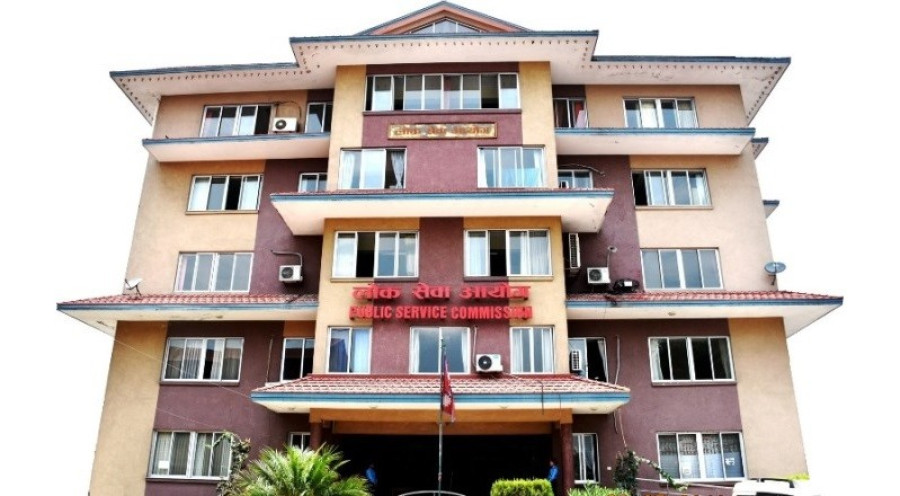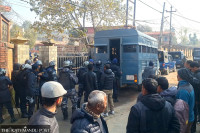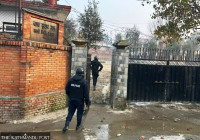Valley
Public Service Commission says its recruitment drive on course after court order
The top court has refused to issue an interim order to halt the process, but questions over principle of inclusion remain.
Prithvi Man Shrestha
After the Supreme Court paved the way for the Public Service Commission to move ahead with its vacancy notice on Monday, the commission said the process to hire staff for local governments would continue as per the schedule published earlier.
The apex court has refused to issue an interim order to halt the recruitment process, saying that the commission issued the vacancy notice in accordance with the law. Over 400,000 people cannot be deprived of their right to sit for the exams, the court said.
Commission Chairman Umesh Mainali told the Post the commission had not halted the recruitment process before the court order and that the process would continue per the schedule.
“We will conduct exams and recommend candidates as per the existing schedule as long as the court does not say otherwise,” said Mainali.
He said the commission would start recommending names for recruitment from October, which would help many local governments to deliver their services in a more effective way.
The commission’s vacancy notice issued on May 29 to recruit 9,161 employees for 515 local governments had landed in controversy mainly on two grounds— whether the commission has the constitutional authority to start fresh recruitment of staff for local governments and whether it ensured 45 percent reservation for the various marginalised group as per the Civil Service Act.
Stating that the recruitment process was against the spirit of the constitution, the parliamentary State Affairs and Good Governance Committee on June 10 had directed the Ministry of Federal Affairs and General Administration and the Public Service Commission to halt the ongoing staff recruitment process.
But both the government and the commission didn’t stop the recruitment process, arguing that the process had been initiated as per the law.
The commission continued to take applications, the deadline of which ended on Tuesday.
According to the commission, it has received a total of 440,163 applications from 256,235 applicants. It has received as many as 433,820 applications under the open competition category.
An individual can apply under both open and inclusion categories as long as he or she belongs to the group entitled to reservation.
There are 103,386 applications under the women category, 43,262 under indigenous nationalities, 24,067 under Madhesi category, 3,086 applications under Dalit category, 145 under disabled category and 116 under backward region, according to the commission.
Although the Supreme Court didn’t halt the recruitment process citing legal provision, the petitioners had raised constitutional questions, which the court said would be addressed in the final verdict.
The court refused to issue an interim order saying the vacancy was called as per Section 12 (5) of Employees Adjustment Act which states that the federal government can request the commission to start the recruitment process for filling vacant posts until Provincial Public Service Commissions are in place.
But the court acknowledged in its latest order that it should address the issue: of how to implement provisions of Article 42 of the constitution which has stated that the various marginalised groups have fundamental right to participate in the state bodies on the basis of inclusive principle.
The petitioners who were against the commission’s recruitment drive stated that the commission’s failure to ensure representation as per quota for marginalised group violated Article 42.
The court should also address the constitutional issue such as whether the parliamentary committee has the right to instruct the commission and whether the all local governments of the entire country should be considered one unit or each local government should be considered one unit for inclusion purposes.
Likewise, the petitioners had said the marginalised groups could not be represented as per the set quota while recruiting staff by considering each local government as a separate unit.
Province 2 Chief Attorney Dipendra Jha termed the commission itself as an illegitimate institution to call the vacancy for local governments, arguing that the constitution does not allow it to make fresh recruitment for local governments.
“The commission has stated recruitment process as per the law, but the provision of the law itself is against the constitution,” Jha told the Post in an interview on Tuesday.
According to Jha, the federal government can adjust its existing staff at three layers of government as per Article 302 of the constitution but the federal government does not have the authority to make fresh recruitment for provincial and local governments.
“Only the Provincial Public Service Commission is authorised to recruit staff for provincial and local governments,” he said.
Province 2 is at the forefront of the protest against the recruitment drive of the commission, saying it breaches the jurisdiction of provincial governments. While the government and the commission have argued that local governments of the country could not be considered a single unit for reservation, Jha argued that there is no constitutional and legal provision that prevents considering local governments of the entire country as a single unit for the purpose of inclusive representation.
Commission Chairman Mainali, however, argued that the vacancy notice has not violated the principle of inclusion.
“We have adopted the same practice in the recruitment drive of staff for local governments that we have been adopting for long to ensure inclusion in civil service,” he said. “Under this system, not all groups are guaranteed representation in a single vacancy notice. If one group does not get the chance of representation at one time, the group gets a chance in another recruitment process,” he said.
But, provincial governments fear that no work would be left for Provincial Public Service Commissions after their formation following the mass recruitment drive at the local level is completed because they are recruited for 30 years. “This will be against federalism itself,” said Jha.
Meanwhile, the Federation of Indigenous Nationalities, a group working for the rights of indigenous people, has objected to the Supreme Court order, arguing that it has failed to uphold the rights of marginalised.




 16.12°C Kathmandu
16.12°C Kathmandu











